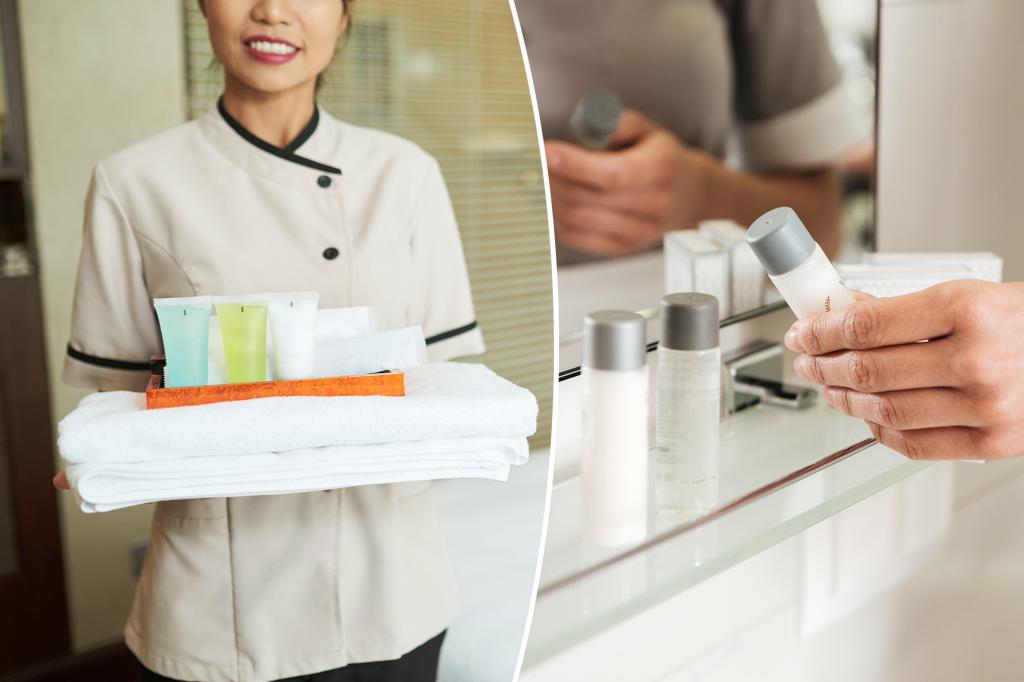New York City hotel rooms are getting a makeover as of Jan. 1, with the ban of single-use plastic bottles for toiletry products under 12 ounces. The new regulations issued by the Department of Environmental Conservation apply to any accommodation with 50 or more rooms in the state of New York, with plans to expand to all hotels, motels, or other hostelries with fewer than 50 rooms by 2026. Establishments found in violation of the new rules will receive a warning and have 30 days to correct the issue. Subsequent violations will result in fines starting at $250 and increasing to $500 for repeated offenses.
Christy Leavitt, the plastics campaign director at the nonprofit Oceana, highlighted the significance of this ban by pointing out that billions of pounds of plastic waste enter the oceans annually. The impact of plastic waste from single-use toiletry bottles used by hotel guests can accumulate to contribute significantly to this pollution problem. The ban aims to address this issue by reducing the consumption of single-use plastics and promoting environmental sustainability.
Major hotel chains had already begun taking steps to reduce plastic waste by implementing green initiatives before the ban on single-use plastic bottles in New York hotels was put into effect. For example, Marriott Hotels had made significant progress in transitioning from small plastic bottles to larger, pump-topped bottles for amenities. This was part of their commitment to reducing plastic waste, with the company achieving a 95% compliance rate globally by the end of 2023.
Eric A. Goldstein, the senior attorney and NYC environment director at the Natural Resources Defense Council, emphasized the importance of reducing plastic use in the fight against climate change. The new regulations in New York City are seen as a crucial step in addressing the plastic waste problem and preventing millions of plastic bottles from becoming a burden on the environment every year. Similar measures have been taken in other states like California and Washington, where bans on single-use plastic toiletry bottles in hotels have been implemented or are scheduled to take effect.
The delay in implementing the ban on single-use plastic bottles in New York hotels was partly due to lobbying efforts from the industry, which argued that hotels needed time to deplete their existing stock of such bottles. Despite the postponed enforcement, the ban presents an opportunity for hotels and other accommodations to transition to more sustainable practices. By switching to larger, refillable containers for toiletry products, these establishments can reduce their reliance on single-use plastics and minimize their environmental impact.
The broader goal of reducing single-use plastics in hotels and similar lodgings is part of a larger environmental initiative to address the problem of plastic pollution. Advocates like Christy Leavitt stress the importance of taking action on specific items like toiletry bottles to make a meaningful impact. By implementing regulations that promote the use of sustainable alternatives and discourage the disposal of single-use plastics, New York and other states are working towards a cleaner and more environmentally friendly future.


